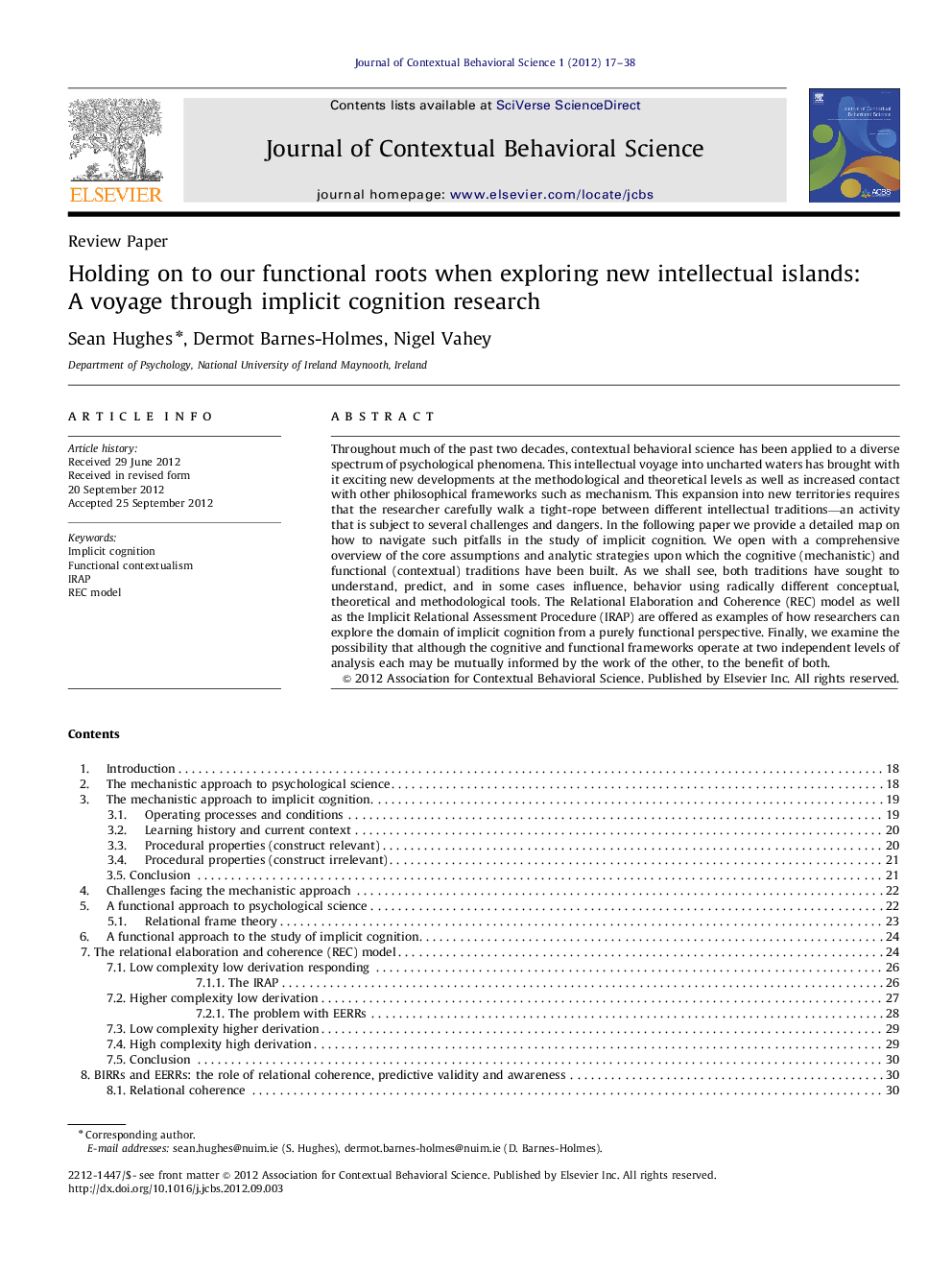| Article ID | Journal | Published Year | Pages | File Type |
|---|---|---|---|---|
| 911232 | Journal of Contextual Behavioral Science | 2012 | 22 Pages |
Throughout much of the past two decades, contextual behavioral science has been applied to a diverse spectrum of psychological phenomena. This intellectual voyage into uncharted waters has brought with it exciting new developments at the methodological and theoretical levels as well as increased contact with other philosophical frameworks such as mechanism. This expansion into new territories requires that the researcher carefully walk a tight-rope between different intellectual traditions—an activity that is subject to several challenges and dangers. In the following paper we provide a detailed map on how to navigate such pitfalls in the study of implicit cognition. We open with a comprehensive overview of the core assumptions and analytic strategies upon which the cognitive (mechanistic) and functional (contextual) traditions have been built. As we shall see, both traditions have sought to understand, predict, and in some cases influence, behavior using radically different conceptual, theoretical and methodological tools. The Relational Elaboration and Coherence (REC) model as well as the Implicit Relational Assessment Procedure (IRAP) are offered as examples of how researchers can explore the domain of implicit cognition from a purely functional perspective. Finally, we examine the possibility that although the cognitive and functional frameworks operate at two independent levels of analysis each may be mutually informed by the work of the other, to the benefit of both.
► Provide a comprehensive overview of the cognitive and functional approaches to implicit cognition. ► Examine the Relational Elaboration and Coherence model and Implicit Relational Assessment Procedure. ► Apply the REC and IRAP to the study of implicit cognition. ► Explore the possibility for fruitful dialog between the cognitive and functional traditions.
